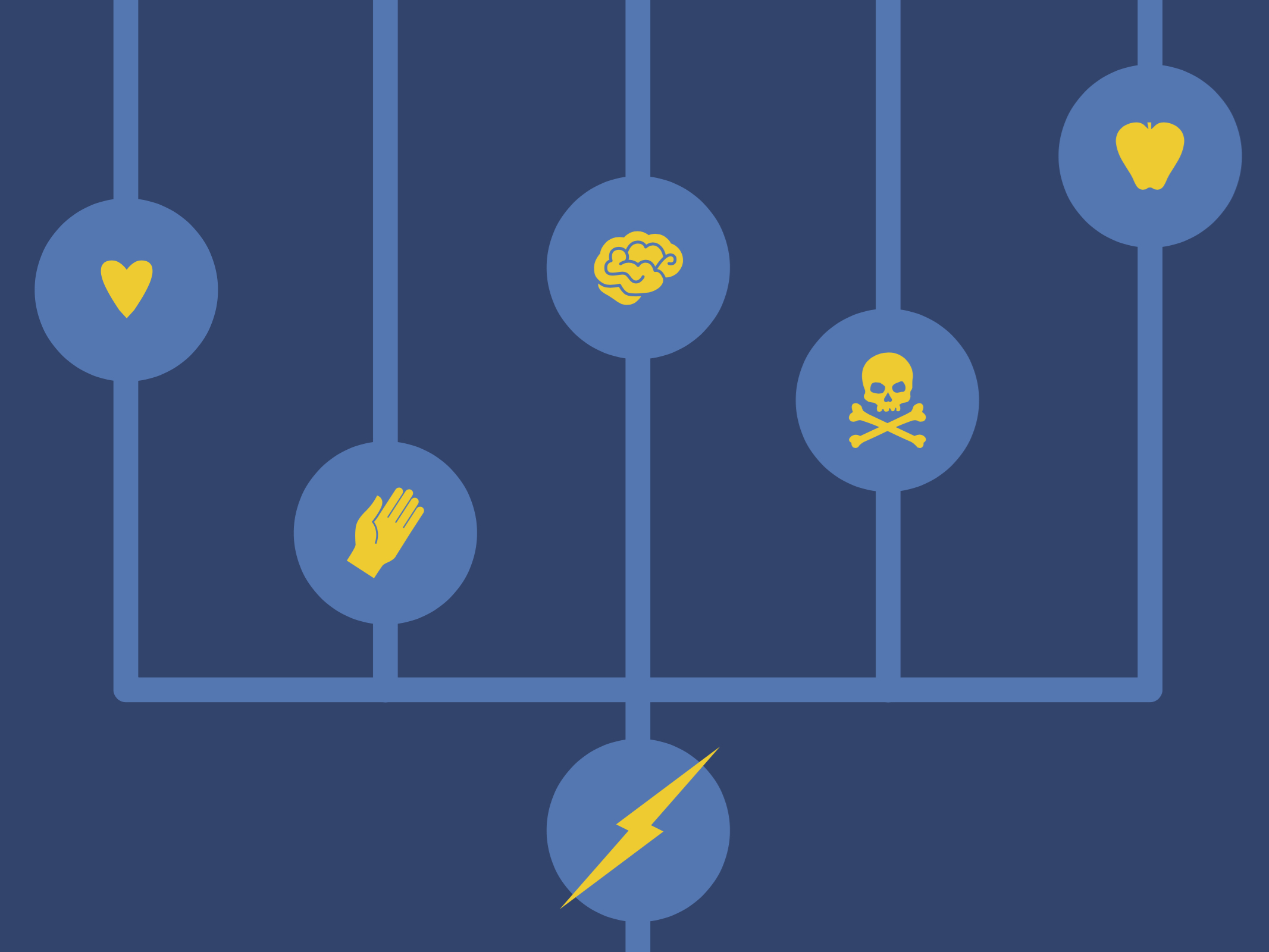 Stress is usually thought of as psychological. But there are many different types, which can be divided into the five categories of stress: mental, physical, emotional, nutritional, and toxic. I have developed these general categories to help my clients better understand the various stressors in their lives. The body undergoes stress anytime it encounters a challenge that is not easily overcome. What types of challenges and stressors do we commonly face?
Stress is usually thought of as psychological. But there are many different types, which can be divided into the five categories of stress: mental, physical, emotional, nutritional, and toxic. I have developed these general categories to help my clients better understand the various stressors in their lives. The body undergoes stress anytime it encounters a challenge that is not easily overcome. What types of challenges and stressors do we commonly face?
1. Mental
Mental stressors are those in which the thought process provokes the stress response. Of all five categories of stress, this is the category that people most commonly think of. When I ask clients and friends about the sources of stress in their lives, most reply that work is their biggest stressor. This makes sense, because sustained mental focus and effort is obviously challenging, particularly in a competitive environment. Similarly, school can be a source of mental stress due to the demands of problem solving and creative thought production, especially when you’re being graded on your performance. But work and school aren’t the only mental stressors. Other worries, like relationships with others, communication, and self-presentation are common examples. Thoughts like “What should I do for my birthday this weekend?” or “What if she doesn’t like what I am wearing?” or “I hope I say the right thing!” are all expressions of mental stress.
2. Physical
Technically, all stress fits into this category, as stress is measured by physical changes in the body. However, the physical category specifically refers to challenges like lifting heavy objects, hiking up a hill, and other forms of exercise. Another example is sustaining an injury such as a broken bone or cut. These events require an immediate increase in energy, and they have an obvious beginning, middle, and end.
3. Emotional
It’s important to separate emotional challenges from mental ones. Emotional processing occurs in a different, more primitive part of the brain. The emotional brain precedes the cognitive portion of the brain in the signal chain. If the emotional brain perceives a threat, it will trigger the fight or flight response before you even have a chance to think. Examples of emotionally challenging events are experiencing the death of a loved one, witnessing violence, or even watching a horror film. There is a blurry line between mental and emotional stress, as the most exaggerated and common mental stress occurs when there is anticipation of an outcome which could represent success or failure—and this is when it becomes a thought-induced emotional stress.
4. Nutritional
Nutritional stress is a more complex category. Out of all five categories of stress, it is one of the most important to understand because diet and nutrition have such a huge impact on health. A nutritional challenge can be in the form of a missed meal or insufficient intake of calories. It can also be a deficiency of a specific nutrient, such as protein or certain vitamins and minerals. A third possibility is that the foods you consume are difficult to break down and thus create a demand on your body which exceeds the available energy for digestion. The end result in all cases is an interruption in the material necessary to balance the demand placed on the body and to maintain function.To help reduce nutritional stress, I recommend a diet that is high in fruits and whole foods.
5. Toxic
A good example of a toxic stressor is the ingestion of or environmental exposure to a poison, such as arsenic or snake venom. The body will have a certain ability to resist the poison. But if the poison level exceeds your threshold of tolerance, it will become stressful and require significant action from the body’s immune and detoxification systems. Other substances that fit into this category are parasites, irritating portions of foods, microorganisms, and byproducts of bacteria and viruses. Even some of the byproducts of your own metabolism and bodily functions are toxic, such as lactic acid and nitric oxide.
Understanding the five categories of stress is the first step in learning how to deal with the various challenges in your life. The next step is learning how to prevent the harmful effects of stress on your body. Check out my previous post for advice on how to overcome stress with nutrition.
Enjoy learning about health from a scientific perspective and digging into the truth behind popular notions in nutrition and fitness? Sign up for my monthly newsletter. Interested in trying a new workout method that’s great for injury prevention, pain management, and overall health? Sign up for my ELDOA group classes!







